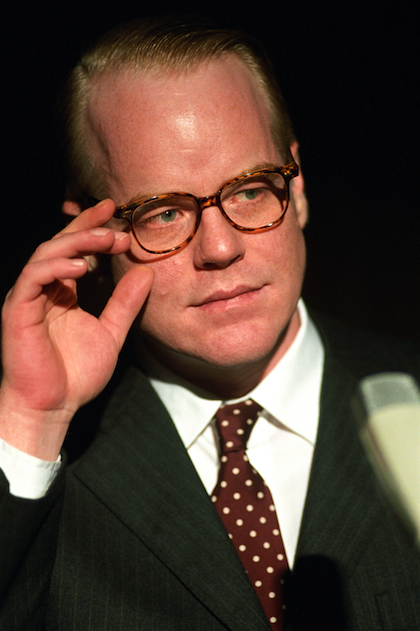Philip Seymour Hoffman: 4 Unforgettable Performances

Here's an article I never wanted to have to write... at least not under these circumstances.
I never met Philip Seymour Hoffman, interviewed him, or even bumped into him on the busy streets of NYC, where we both called home. But I was, and still am, a fan, and that is all that I come to you today as. To say that Philip Seymour Hoffman was one of the greatest American actors working today is a statement that few would argue with. Plenty of articles will be written about him as the days go by, and a friend of mine pointed out that a few will probably try to compare him to some of the brilliant actors of yesteryear. I can certainly understand that impulse, as it is an easy way to quantify a person’s talent. But at the end of the day, Mr. Hoffman was not the second coming of Orson Welles, Clark Gable, or James Cagney. He was Philip Seymour Hoffman, a wonderfully talented man whom we’ll all miss dearly. For those of you reading this who are not too familiar with Mr. Hoffman’s body of work, here are four of his films that I highly recommend.




